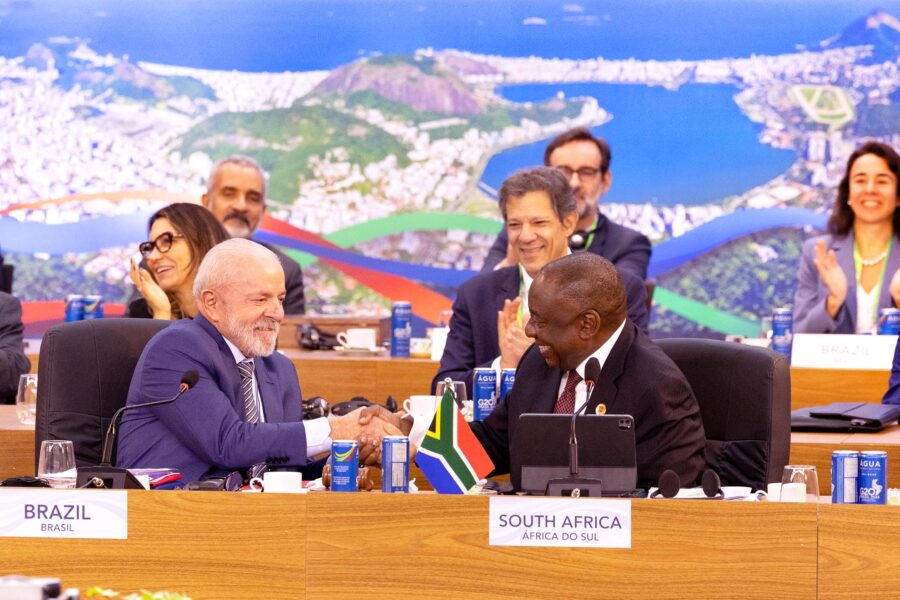Corporate environmental hypocrisy must end now
Marketing and lobbying in support of bogus “green” solutions is undermining global efforts to halt climate change. The UN must step in to convene an intergovernmental scientific panel that evaluates corporate environmental claims
Climate — Global

Private sector corporations know that society is desperate for climate solutions and that they have prodigious opportunities to advance business interests if their actions appear to help the climate cause. Unsurprisingly, corporations have flooded markets with a vast range of “green” products and business practices, which they aggressively project as the panacea to halt climate change. I believe this unbridled proliferation of corporate climate “solutions” is dangerous and must stop.
From my perspective, the constant influx of new “green” products and practices is a deliberate corporate approach to first create and then sustain a favorable image. Capricious solutions give the public a repeated sense of optimism while making it practically impossible for the scientific community to timely assess – and accordingly educate the public – what these products or processes can deliver at scale.
The process repeatedly follows the same predictable pattern. First, corporations engage scientists to conduct a limited-scope environmental impact assessment (EIA) of their prototype products or business practices. Then, in the name of translating scientific findings to “easy to understand” corporate communication reports and policy briefings, critical assumptions and boundary conditions of EIAs are dropped to construe – well, fabricate – a generalizable narrative. At this point, a product or business practice is aggressively branded as the panacea for our environmental woes. By the time the research community empirically assesses whether that product or practice actually delivered any environmental benefits, the menu has changed. And so this cycle repeats.
This process is evident in the forest sector, which I study. Years ago, many forestry corporations aggressively promoted wood-based bioenergy for its environmental benefits, which were estimated using limited-scope EIAs. They then pushed for favorable policy changes and, in fact, largely succeeded. Years later, we are beginning to understand that this approach was an ecological folly. It has resulted in a wide range of adverse environmental impacts on water, air, and soil quality as well as on biodiversity. Many scholars, who were not listened to, had already predicted this.
Instead of learning from this failed experiment and conducting holistic and global-scale EIAs for future projects, forestry corporations are now repeating the same story with their new offering: mass timber, a special type of engineered wood. Many life-cycle assessment (LCA) studies conducted primarily in northern Europe and North America show that buildings made of mass timber are environmentally friendlier than those made of alternative materials. Some studies dispute these results, but forestry corporations are aggressively pushing mass timber as the panacea to decarbonize the building sector using those limited-scope LCA studies that bolster their case.
Meanwhile, we do not understand the consequences of mass timber adoption at a global scale. Apprehensions abound that it will enhance the need for monocrop plantations and likely exacerbate illegal wood trade in many parts of the world. Turning a blind eye to these serious concerns, forestry corporations are aggressively seeking to establish mass timber as the new poster child of sustainable buildings.
This story is not unique to forestry. Cherry-picking slices of scientific findings and abusing them as lobbying tools is a common form of corporate environmental hypocrisy. Green economy, circular economy, sharing economy, regenerative economy, bioeconomy, net-zero emissions, nature-based solutions, science-based targets – as a society, we are incessantly inundated with new and exciting labels and narratives that give a false sense of precision, objectivity, and optimism. Colloquially speaking, we are strung along.
Scientific veracity
Fleeting corporate climate “solutions” have two perilous effects. First, they prevent society from authentically reflecting upon its unsustainable ways of living and the economic structures that reinforce these lifestyles. Thus, they distract us from searching for substantive actions. Second, by manipulating scientific research, they also insidiously erode the legitimacy of science, scientists, and academic institutions. When the public sees that an approach, allegedly claimed to be scientifically well- proven, fails to deliver desired results or causes harm, science is subjected to ridicule. Scholars conducting isolated EIAs (for example, through LCA or other tools) rarely recognize how flagrantly their limited-scope studies are misconstrued to advance corporate agendas. Even if they do, many often let it slide, due, in part, to their reliance on industry funding to sustain their research programs.
In the final analysis, an unbridled proliferation of ephemeral corporate climate “solutions” is a dangerous hypocrisy that must stop. As a matter of professional responsibility, scientists must be watchful and courageous in publicly calling out corporations if scientific findings are manipulated even in the slightest manner. Just as corporations require scientists to sign non-disclosure agreements in collaborative research, scientists must have corporations sign full-disclosure agreements requiring them to include all caveats and contingencies in any corporate communication related to those scientific findings.
We also need an intergovernmental research unit, under the auspices of the UN, tasked with vetting and verifying the scientific veracity of corporate climate claims at a global scale. Scientific veracity must be assessed both quantitatively (such as with interdisciplinary modeling) and qualitatively (for example, with forward-looking, anticipatory policy analyses).
I emphasize the need for qualitative analyses because EIAs typically ignore that “all that matters cannot be counted, and not all that can be counted matters.”
In this crucial Decade of Action, we must devise robust mechanisms to end the corporate environmental hypocrisy that is preventing us from taking substantive actions, and also systematically diminishing the credibility of science. I call upon the UN to convene an intergovernmental scientific panel to correct this course.





